MONDAY, SEPTEMBER 15,
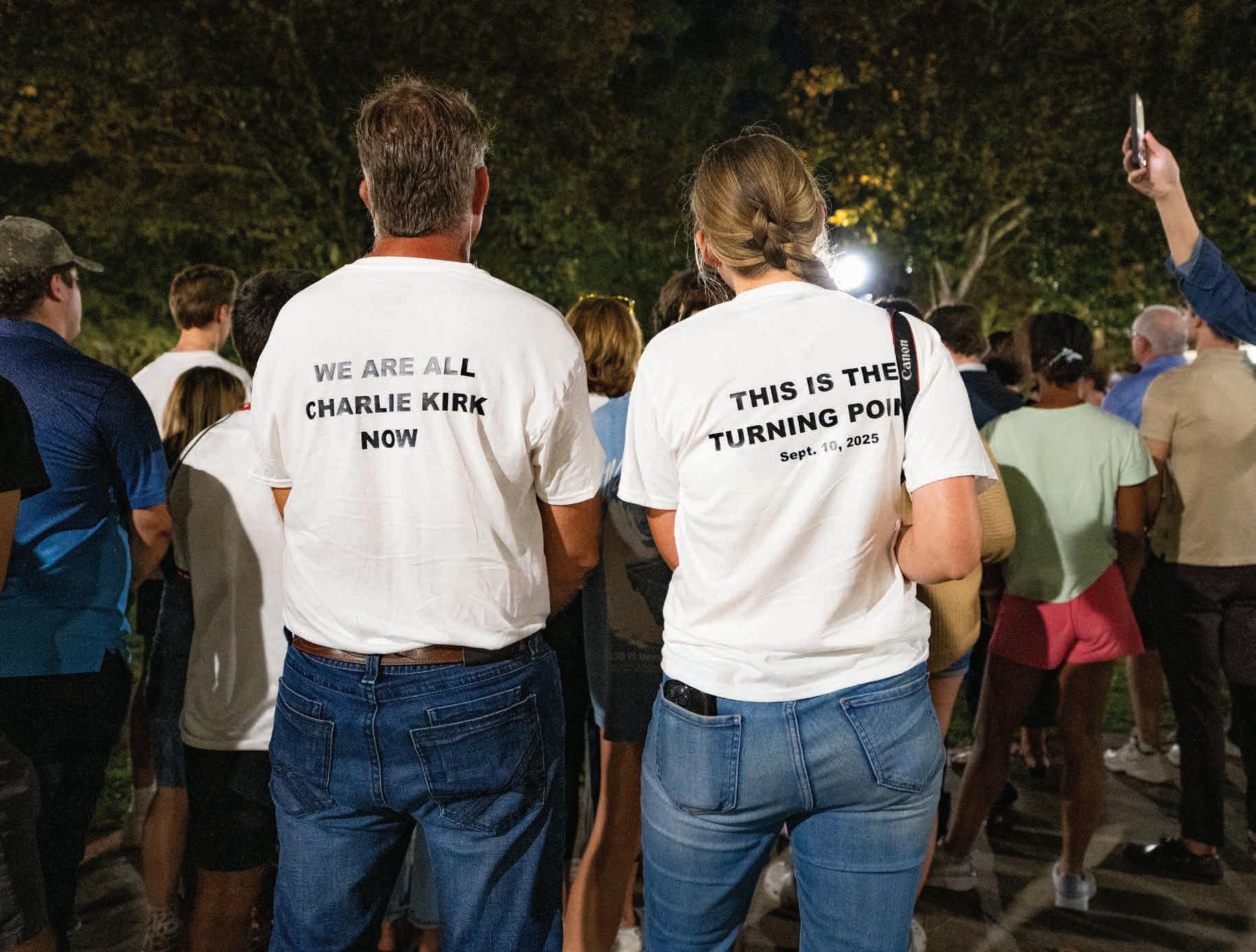

MONDAY, SEPTEMBER 15,

By Kaysheri Haffner Alligator Staff Writers
By Julianna Bendeck Contributing Writer
Among tears, prayers and bowed heads, over 250 people formed a circle on UF’s Plaza of the Americas to mourn the death of conservative activist Charlie Kirk.
UF’s Turning Point USA chapter hosted the vigil on the night of Sept. 11 to honor the life and legacy of the organization’s 31-year-old co-founder.
Kirk, a prominent conservative activist, was shot and killed Sept. 10 while speaking at Utah Valley University for the fall leg of “The American Comeback Tour.” Law enforcement had yet to identify the shooter as of Sept. 11.
“He will go down as a martyr for this movement,” said Jennifer Gar-
cia, a 21-year-old UF criminology and political science senior and the president of UF Turning Point, as the vigil began.
Kirk visited UF in February as part of his nationwide tour intended to bring conservative dialogue to college campuses. He founded Turning Point USA, a nationwide conservative youth activist group with over 850 chapters across college campuses, in 2012.
At the vigil, Garcia said the Turning Point community needs to come together and continue Kirk’s work.
“Our community is hurt, our community is weak, but our community wants to make sure that we honor his legacy,” she said.
Garcia was the first of dozens to speak about the impact Kirk had on her life.
The core of his legacy, she said, is open discourse. Having met Kirk over breakfast during his stop at UF, she said the news of his death was surreal to hear. She was shocked, she said, but she believes Kirk’s death will only further mobilize the conservative youth movement.
SEE CHARLIE KIRK, PAGE 3
By Swasthi Maharaj Alligator Staff Writer
Dr. Donald Landry, a Columbia University physician and academic leader, was approved to continue serving as UF’s interim president Sept. 11.
Landry, chair emeritus of Columbia’s Department of Medicine and president of the American Academy of Sciences & Letters, began his term Sept. 1 under a oneyear contract that pays a $2 million base salary and allows for up to $500,000 in
performance incentives.
According to the contract, if he is not selected as UF’s permanent president within the academic year, he will receive an additional $2 million in severance. The agreement runs through Aug. 31, 2026.
His predecessor, Kent Fuchs, earned about $1 million in his 13 months as interim president. Santa Ono, the former University of Michigan president who was briefly considered for the position, was comparatively offered a $1.5 million base salary with the potential to earn $3 million

through bonuses and additional duties.
Landry’s contract outlines responsibilities like addressing issues of diversity, equity and inclusion, student safety, school and research rankings and artificial intelligence integration in education.
Landry is expected to uphold state laws prohibiting the use of public funds for DEI initiatives. He must also work with the state and federal Department of Government Efficiency to “eliminate waste, fraud and abuse.” This provision aligns with ongoing state efforts to reform higher educa -
tion spending, emphasizing accountability and efficiency within public institutions.
Other focuses include UF student safety, particularly that of the Jewish community, and the university’s ongoing initiatives in artificial intelligence.
Landry is also required to fill interim and vacant positions with people who “are firmly aligned with and support the principles guiding Florida’s approach to higher education.” That includes picking a permanent provost, interim dean posts, cabinet positions, directors and other academic leaders.
UF PRESIDENT, PAGE 4


By Kaysheri Haffner Alligator Staff Writer
Former State Rep. David Jolly has previously pledged allegiance to three different political parties. He entered Florida’s 2026 gubernatorial race in June as a Democrat to mixed reactions of celebration and chagrin.
Jolly started his political career in 2014 as a Republican, spending four years as a GOP congressman and six years as a registered Independent. Five months ago, Jolly joined the Democratic party as its frontrunner candidate for Florida governor.
The 52-year-old attorney and Florida native spent 10 years of his childhood in Miami as a Southern Baptist minister’s son. He has two children with his wife, Laura. For the past eight years, he’s worked as a political commentator for MSNBC.
Jolly sat down with The Alligator for a one-on-one interview about visions for the state during his quick trip to Gainesville on Sept. 12, where he also met with student members of UF College Democrats. Covering a range of topics, the candidate focused on the moves he'd make as governor.
This interview has been edited for length and clarity.
Q. Why are you running?
A. We have an affordability crisis in the state of Florida that's hitting everybody from every walk of life. The affordability crisis is real. Gov. Ron DeSantis has declared culture wars, has further marginalized communities, has punched down and divided too many Floridians. [In] some areas, it's a direct attack on democracy. I think the permission structure around the culture wars is violative of the U.S. Constitution, in many ways, but I think as a matter of leadership, we can turn the corner on that.
Q. How are you planning to connect with Democratic voters?
A. I've been a Republican. I've been an Independent. I'm now a Democrat. And so hopefully, that allows me to have conversations that maybe traditional candidates haven't in the past. The government should have a role in people's lives. We should be a state where everyone's welcomed and celebrated, regardless of the color of your skin, where you were born, who you love or who you worship.
Q. How can young Democrats trust that you will represent their party accurately?
A. It is on me as a candidate to instill trust, but what I would ask is that any voter, particularly young voters, consider meeting me halfway. Part of my change came from serving in Congress, recognizing that some of the positions I had were wrongly impacting communities. That's true on reproductive freedom. I would ask younger voters, if I'm reaching out,
trying to build a trusting relationship, consider doing the same.
Q. Amendments 3 and 4, which would have allowed for recreational marijuana use and abortion before fetal viability, respectively, were big among young voters last year. They failed. Looking forward, what is your plan?
A. Personally, I voted for Amendment 4. I voted against Amendment 3. Regardless, more than 50% of the state voted for both. If more than 50% of the state says we want this, just because it failed the 60% constitutional threshold, my responsibility as governor is to fight for more than 50% of the state. I don't have a problem doing that, even if my personal vote may have been for one and against the other.
Q. It’s been decades since we've had a Democrat in office as the governor. How are you setting yourself apart from previous candidates?
A. This is about litigating the future of Florida: good schools, safe communities, a crime policy that fights crime but not fights communities. And I represent change in a lot of different ways. I've changed personally, right? I'm a new Democrat. I get to tell the story that this is maybe different than the past Democrats you've seen.
Q. How are you planning to combat the very active voter base that supports Republican values?
A. On some of those other cultural issues, we're not going to take the bait on all of them, because a lot of them aren't actually relevant to people's lives in Florida. But we're not going to shy away from defending people, either. You might not see me running on all of these issues we've discussed, but where Republicans want to attack communities, I'll defend.
Q. Republicans lead in voter registration; Democrats are down in that regard. How are you planning to win over those who are on the fence, and how are you planning to rally Democrats to win?
A. I've got to go places where Democrats haven't. We have to sit with the agricultural community and say, “I understand.” This might be red territory, but your labor markets are tight because of the governor's attack on the immigrant community. Maybe that's an opportunity for the [agricultural] community to say, “Maybe I voted for President Donald Trump and would vote for him again, but in the governor's race, I really like the policies from the Jolly coalition.”
Q. We saw how hard Florida went for Trump in 2024. Trump already endorsed Byron Donalds, a Republican candidate for governor. How are you going to deal with that?
A. We're already seeing “buyer’s remorse” from some Republican Trump voters, who still today are Republicans, but maybe not Trump Republicans. The economic crisis is

Have an event planned? Add it to the alligator’s online calendar: alligator.org/calendar
real. It impacts Republicans, Independents and Democrats. Doesn't matter if you voted for Trump or not. This is a question about the future direction of Florida. And most of Florida’s voters are showing that they want to go in a different direction.
Q. What about the Republican plans to do a mid-decade redistricting? How will that change how you approach your campaign?
A. I think it's wrong what Republicans are doing, even if there's a constitutional or legal case to justify it. I think we need to make the deliberate decision as Florida voters to move to independent redistricting commissions. That would be my North Star. Do we have a responsibility to protect democracy by fighting back against what Republicans are doing? Yeah, every day of the week.
Q. One of the number one focuses of Florida voters is the cost of living and property insurance. What is your actual, viable plan to bring those costs down?
A. We need a state catastrophic fund to remove natural disaster coverage from the private market. We can apply it to industrial and commercial companies, immediately driving down costs on taxes. We can reduce utility costs by breaking up our utilities and by bringing in clean and renewable energies that helps save the environment, but also reduces costs for consumers. All that can be done. Republicans won't do it.
Q. You mentioned a catastrophe fund as part of bringing down these prices. Where is that money going to come from?
A. If we actually tax the insurance and corporate profits in the state of Florida, requiring them to keep their profits here, you could generate almost $3 billion a year. Right now, state law requires our tourist development money to be re-spent on advertising tourism. We need those economies, but we have plenty of revenue coming into this state to actually apply it toward a crisis impacting Florida's families.
Q. If Democrats do rally together and elect you, what year-one changes do you want to have?
A. I think we start on day one, firing all of the appointees of DeSantis, returning subject matter expertise, clean water, clean air advocates, consumer advocates to our utilities, student and academic advocates to our universities. We can start delivering on discretionary budget priorities right away, workforce housing, affordable housing. We can eliminate the attack on local control.
@kaysheri_h khaffner@alligator.org

352-376-4458 NEWSROOM:
Engagement Managing Editor
Digital Managing Editor
Enterprise Editor
Metro Editor
University Editor El Caimán Editor
Opinions Editor
Sports Editor
Assistant Sports Editor
Multimedia Editor
Assistant Multimedia Editor the Avenue Editor
Editorial Board
Advertising Office Manager
The Independent Florida Alligator is a student newspaper serving the University of Florida, published by a nonprofit 501 (c)(3) educational organization, Campus Communications Inc., P.O. Box 14257, Gainesville, Florida, 32604-2257. The Alligator is published Monday mornings, except during holidays and exam periods. The Alligator is a member of the Newspaper Association of America, National Newspaper Association, Florida Press Association and Southern University Newspapers. Not officially associated with the University of Florida Published by Campus Communications Inc., of
Alissa Gary, agary@alligator.org
Zoey Thomas, zthomas@alligator.org
Sophia Bailly, sbailly@alligator.org
Shaine Davison, sdavison@alligator.org
Megan Howard, mhoward@alligator.org
Maria Avlonitis, mavlonitis@alligator.org
Corey Fiske, cfiske@alligator.org
Juliana DeFilippo, jdefilippo@alligator.org
Vera Lucia Pappaterra, vpappaterra@alligator.org
Luke Adragna, ladragna@alligator.org
Amanda Roman, aroman@alligator.org
Sydney Johnson, sjohnson@alligator.org
Noah Lantor, nlantor@alligator.org
Copy Desk Chief Pristine Thai, pthai@alligator.org
Alissa Gary, Zoey Thomas, Sophia Bailly, Pristine Thai, & Corey Fiske
352-376-4482
Sales Representatives Cheryl del Rosario, cdelrosario@alligator.org
Paige Montero, Sydney Sesaldo, Simone Simpson, JP Fournier, Jasmine Chavez, Faith Shimick, Yaxel Valladares
Nethumi Ratnayake, Sofia Korostyshesky, Rachel Al Baissari
352-373-3463
Classified Advertising Manager Ellen Light, elight@alligator.org
352-376-4446
Comptroller Delia Kradolfer, dkradolfer@alligator.org
Bookkeeper Cheryl del Rosario, cdelrosario@alligator.org
Administrative Assistant Ellen Light, elight@alligator.org
352-376-4446
General Manager Shaun O'Connor, soconnor@alligator.org
President Emeritus C.E. Barber, cebarber@alligator.org
SYSTEMS
IT
System Engineer
Production Manager
Kevin Hart
Namari Lock, nlock@alligator.org
Publication Manager Deion McLeod, dmcleod@alligator.org

Got something going on? Want to see it on this page? Send an email with “What’s Happening” in the subject line to engagement@alligator.org. To request publication in the next day’s newspaper, please submit entries before 5 p.m. Please model your submissions after the above events and keep them to 150 words or fewer. Improperly formatted “What’s Happening” submissions may not appear in the paper. Press releases will not appear in the paper.
The Alligator offices are located at 2700 SW 13th St. © Copyright 2020. All rights reserved. No portion of The Alligator may be reproduced in any means without the written consent of an officer of Campus Communications Inc.
Subscription Rate: Full Year (All Semesters) $75
The Alligator strives to be accurate and clear in its news reports and editorials. If you find an error, please call our newsroom at 352-376-4458 or email editor@alligator.org
KIRK, from pg. 1
“I know that at its core, this just showed that he did what he loved and he was a great man,” Garcia said. “A man of Christ and a true American patriot.”
Other students stepped forward to speak and mourn.
Matt O’Hara, a 21-year-old UF materials science and engineering senior, brought his acoustic guitar and led the group in a series of Christian worship songs. He said he was already planning to worship on the Plaza after Kirk’s death, then joined the vigil when he saw the crowd.
“After all this, I really do believe that this is a time for Christians to rise up and worship in spirit and truth,” he said.
Officers from UPD surrounded the area, and police vehicles were parked on street corners with lights flashing.
UF spokesperson Cynthia Roldán said the university couldn’t share details about UPD’s event security. But in light of Kirk’s death, UF will “continue to ensure individuals are able to express their ideas, free from bullying, violence or any other type of disruptive behavior,” she wrote in an email.
Community members also filtered on to UF campus for the vigil. Jennifer Friend, a 58-year-old Hawthorne resident and registered Republican, attended the vigil in bright red “Make America Great Again” clothing.
She said she was heartbroken Kirk was killed as a young father with two children. He had so much more to do, she added, and he only wanted to be remembered as a servant of God.
“One day, I think he would have been president,” Friend
said. “They changed history yesterday by killing him.”
She watched the video in shock, she said. She was heartbroken and cried when the news of his death set in.
“I had to sit in my car for a little while and think about what just happened,” she said. “He was a good man.”
In January, Kirk spoke at President Donald Trump’s inauguration and was considered one of the president’s close advisers.
Trump announced Kirk’s death on Truth Social and expressed his sympathies, writing that no one “understood or had the Heart of the Youth in the United States of America better than Charlie.”
During the president’s 9/11 memorial address at the Pentagon, Trump said he would honor Kirk with a posthumous Presidential Medal of Freedom.
Noelle Mattiace, who spent two years working as a college field representative for Turning Point USA, said Kirk always made meetings feel like family. The 25-year-old said she was blessed to meet him in person a few times, and his humility shocked her.
When she first learned he was shot, she said she hoped and prayed he would make it. When he didn’t, it was devastating, she added.
“I went through all the stages of grief in a minute,” Mattiace said.
Angelina Romano, a 19-year-old UF economics sophomore, said she’s a long-time supporter of Kirk. She wore her “47” hat, a reference to Trump’s presidency, everywhere after Kirk signed it. After getting more involved with Turning Point USA, she met Kirk and got a picture with him.
“I have such a huge amount of respect for him,” Romano said. “His entire work was to try to connect people again. It was to try to open up the conversation.”
Upon seeing a close-up video of the shooting and hearing
about his injury, Romano said, she attended the crisis support walk-in hours at Peabody Hall.
Romano said when she found out Kirk was dead, she called her mom with the news, sobbing on the phone.
Romano met up with other students the morning of the vigil. She needed the community's support to process the news, she said. When she learned Trump intended to award Kirk a Presidential Medal of Honor, she burst into tears.
Kirk’s death drew condemnation from students across the aisle as well.
Connor Effrain, a 21-year-old UF history senior and the president of UF College Democrats, said political violence is never justifiable. He pointed to the shooting of two Democratic Minnesota state legislators and their spouses this summer as an example of the effects of violence on all sides of the political spectrum.
“We are Americans. We're not Republicans or Democrats,” Effrain said. “We're Americans who happen to have different political beliefs, and the foundation of our great country is that we can share these beliefs and without fear of being attacked.”
He said the implications of this violence are chilling, especially concerning freedom of speech. Multiple political figures have canceled speeches and appearances since the announcement of Kirk’s death.
However, Effrain said, he also hopes the tragic event will spark reflection and change in others.
“Life is sacred. It's the thing that has the most sanctity in this world,” he said. “We should implement the right policies to make sure this doesn't happen again.”
@kaysheri_h, khaffner@alligator.org jbendeck@ufl.edu
THE FAMILY NUTRITION PROGRAM
By Maria Arruda Alligator Staff Writer
A UF Institute of Food and Agricultural Sciences program that provides free nutrition education to Floridians in low-income communities will be discontinued Sept. 30 after federal funding eliminations.
The Extension Family Nutrition Program, known as FNP, teaches children and teenagers how to make nutritious food choices through school programs, and it offers free training to locals interested in helping the cause.
FNP Associate Director Lynnette Jean said community members will lose a reliable source of fresh, healthy foods following the program’s elimination. Previously, children could take home produce grown at their schools to help supplement family meals.
“For many, it's a gap that will be felt at the dinner table,” she said.
The program is now communicating with staff and partners, which includes schools, child care centers and other community organizations, to ensure they have the resources they need before FNP’s closure, she said.
FNP is a meaningful stepping stone for chil-
dren to connect with where their food comes from and to foster “healthier, lifelong habits,” Jean added. Ample evidence showed the program’s effectiveness, and she hopes its legacy continues beyond its closure, she said.
“It's something that's really special and interconnected and woven into the community, and it is something that people are having a hard time processing and figuring out,” she said.
FNP was previously financed by the Florida Department of Children and Families, the state agency responsible for administering the Supplemental Nutrition Assistance Program Education, or SNAP-Ed.
The funding cuts came after the national “One Big Beautiful Bill” passed in Congress July 4. The act reduced SNAP funding by nearly $200 billion through 2034 and is expected to affect around 4 million Americans, according to an analysis published by the Center on Budget and Policy Priorities.
The FNP program announced its closure on Facebook Sept. 2, thanking its partners and saying the mission behind the SNAP-Ed will remain strong.
“Our team is actively working with partners to review current projects and support a smooth wrap-up,” the post said.
IFAS, the UF institute that ran the program, published a blog Sept. 9 explaining SNAP funding cuts will take effect nationwide Oct. 1. The
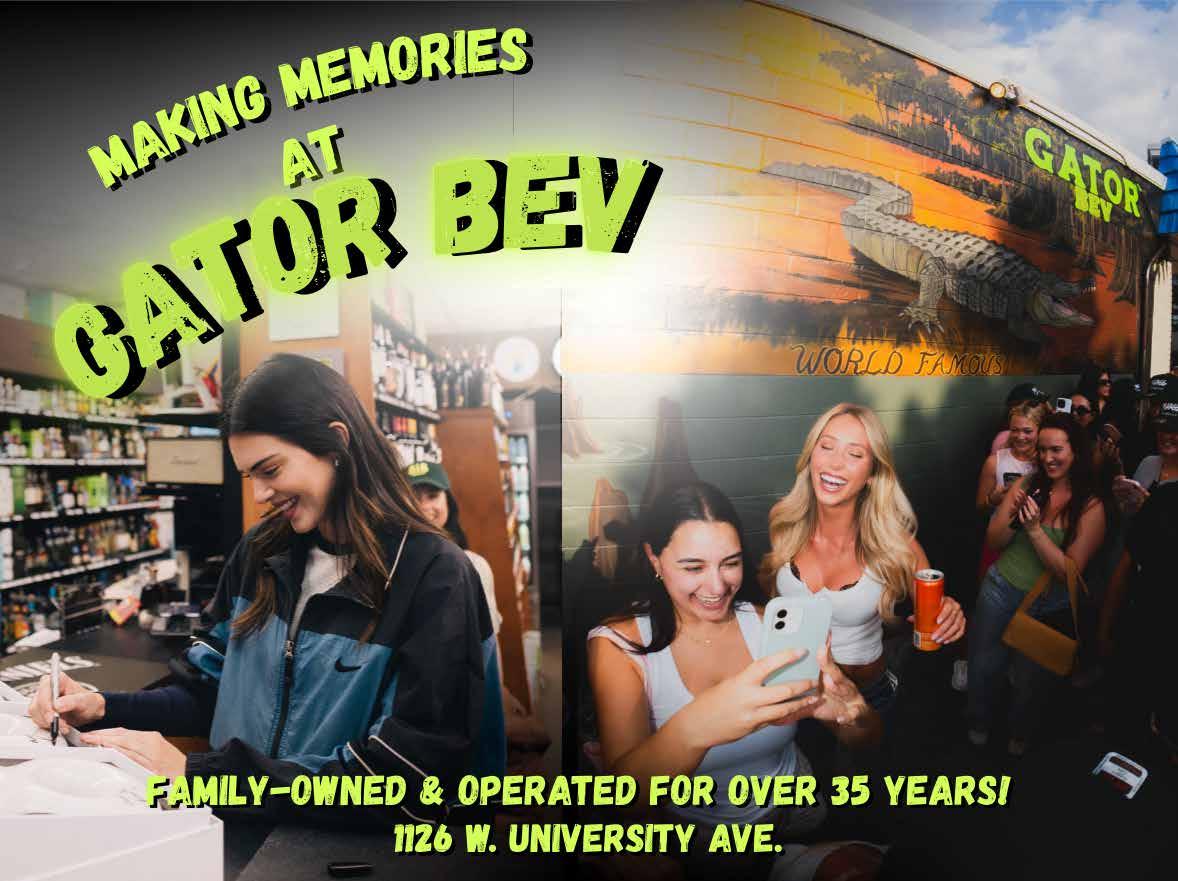
post said 76 of its employees from 31 counties will lose their jobs from the program’s closure, including nutrition educators and program managers.
FNP reached about 270,000 Florida students through more than 11,000 classes taught in 2024, according to the blog. Student fruit and vegetable consumption, along with physical activity levels, increased by the year’s end, based on surveys of participating 3rd through 12th graders.
Amanda Greenfield, leader of the garden club at Avalon Elementary School in Orlando, said she became involved with the FNP through the program’s free training. She said the program was a “huge” factor in mending the food insecurity problem in Orange County.
Avalon Elementary placed third out of 33 schools in the Orange County Public Schools Green School award in 2024, which recognizes schools for sustainability efforts in several fields, including improving health and well-being. Greenfield credits the UF partnership with the school’s success.
“Everything that we put in our application to place third was because of what they provided for us,” she said.
Greenfield added she feels the school district hasn’t considered how the FNP’s assistance will be replaced. She has applied for grants and reached out to private donors to keep the mission afloat, she said.
Funding cuts tend to target creative activities first, including art and music, Greenfield added, and she said people lose sight of the importance behind elementary extracurricular involvement.
“Elementary school and school is not just about math and reading,” she said. “It's where they build a foundational part of their life.”
Effects from those cuts are echoing across the state. Two hours north of Orlando, Amanda Demaria, the director of development and engagement at the Gainesville-based Partnership for Strong Families, said her organization will also struggle to train and educate families on nutrition without the FNP.
As an FNP partner organization, the Partnership for Strong Families provided child welfare resources in 13 Florida counties and collaborated with UF to supply families with nutrition classes.
Demaria said her organization is unsure what will happen to its nutrition programming. Options to provide its own FNP-like services are limited, she said, given the staff are not trained nutritionists.
Now, she said, the group is searching for a pro-bono partner to replace FNP.
“I think we will see, across the board, a real struggle in people with limited resources to be able to eat healthy without this program,” she said.
@mariazalfarruda
marruda@alligator.org





By Leona Masangkay Alligator Staff Writer
As UF research spending hit an all-time high, undergraduate funding across the country fell into turmoil when the National Institute of Health abruptly terminated research grants. Some of UF’s undergraduate programs were swept into the mix.
Three UF programs received NIH funding to conduct biomedical research, with a focus on helping students with socioeconomic disadvantages. The grant terminations left each program’s future in question as they looked for alternative support.
In January, President Donald Trump issued an executive order to halt funding and support for programs advancing DEI initiatives. The following month, the NIH began terminating research grants, specifically those appearing to fund DEI-related research.
“Our program was compliant with Florida laws, so any mentions of DEI had already been written out,” said Elizabeth Molchan, a 23-year-old UF alumnus who joined the Maximizing Access to Research Careers program in 2023. “It felt even more unfair for us to receive the termination.”
Opponents contested the cuts in ongoing court cases, saying they violated federal laws having to do with administrative agencies’ power.
At UF, the cut grants include the MARC GatorSTAR program, which supports students “with disabilities or from disadvantaged backgrounds” in pursuing a biomedical PhD. Similarly, the SF2UF Bridge to Baccalaureate program supports low-income, first-generation Santa Fe College students in their transfer to UF.
Both programs submitted proposals for new NIH grants
every five years.
Prior to NIH’s funding changes, the programs submitted proposals focused on disadvantaged students — those who had a disability, or who identified as a racial or ethnic minority with a socioeconomic disadvantage, said David Julian, the program director for MARC and SF2UF.
Both programs altered their proposals to comply with Florida’s 2023 DEI standards. Nonetheless, the programs were still “swept in” with other terminations across the U.S., Julian said.
Research shows a team of diverse individuals is more likely to successfully solve a complex problem, because its members offer more perspectives, Julian said. He added students who are low-income, first-generation or have disabilities experience increased difficulties getting into top graduate programs.
However, as a tax-funded organization, the NIH has the right to change its priorities, Julian said.
“We just try to respond to that and try to be as effective as we can as we can help as many students as we can, given the limits and parameters set by NIH,” Julian said.
The MARC program’s grant remains terminated indefinitely, he said. SF2UF’s grant was reinstated until July 31, 2026, but it's unclear if funding will continue afterward.
The third undergraduate program to lose funding, the NEURON-Aging program, supports students at different education levels in studying aging in neurobiology, like Alzheimer’s disease. The program began in 2023 under a NIH grant meant to promote programs expressing biomedical interest. The grant was only active for two years. The program’s director did not respond in time for publication.
Molchan, who worked in the MARC program from 2023 until she graduated in Spring 2025, said the program aimed to make science more open to everybody. Its grant termination felt like “a stab in the back.”
“For a lot of my fellows who … promises and agreements were made to,” Molchan said. “All of a sudden, the rug is being yanked out from under them.”
Molchan said she learned about the MARC program from her lead researcher, who recommended it to her because she was a woman coming from an underrepresented background.
Corey Broersma, a 21-year-old UF alumnus, joined the NEURONAging program in Spring 2023.
When the DEI-related executive order passed in January, Broersma said members of the program anticipated “something was probably going to happen” with their grant.
In April, Broersma’s mentor confirmed it would be terminated, Broersma recalled.
Following their graduation, Broersma sought additional research opportunities and applied to post-baccalaureate programs across the U.S. But those programs were canceled after the NIH terminated their funds, too.
“That really put a wrench in my plans,” Broersma said. “All of the programs that I had applied to were gone suddenly.”
Tatiana Copja, a 21-year-old UF biology and cognitive and behavioral neuroscience senior, said it was “disheartening” to hear the NEURON-Aging grant was terminated.
News of the termination caused turmoil, Copja said, as trainees speculated on what would happen to their labs.
After the termination, NEURON-Aging members began petitioning to attempt to appeal
UF PRESIDENT, from pg. 1
In his remarks at the UF Board of Trustees meeting earlier this year, Landry called the role an “opportunity of a lifetime.”
In the Board of Governors meeting on Sept. 11, the Board questioned Landry about school rankings, freedom of expression and the development of UF programs. DEI, a frequent topic of discussion in Ono’s Board hearing this year, was not brought up.
“UF is on the ascendant, and I enthusiastically endorse and will tirelessly work to achieve this aspiration,” Landry said in the meeting, mentioning the integration of artificial intelligence into the education system and the development of the UF Hamilton School and Jacksonville campus.
He described the current time as one of “ideological turmoil,” especially on college campuses, promising a larger focus on a culture of freedom of academic expression and civility culture.
Academic freedom hinges on free speech, he said, but it’s not the only right that exists in universities.
“There’s a right to teach, and a right to learn,” Landry said.
There needs to be a limit of time, place and manner of restrictions on expression that disrupts the teaching functions of a university, he said, as significant as necessary, but as small as possible.
Landry also addressed his plans to fill interim positions at UF. He wants to get to know the schools and colleges and leaders currently in place, he said. He said he
the act, Copja said, and she heard the petitions were rejected.
Felipe Quintana, a 21-year-old UF marine science senior, became a SF2UF fellow in Summer 2023.
The grant terminations are a “shame,” he said, and impact many students in the program, especially those who are from out-of-state.
Some fellows needed additional financial support once the grant was terminated and “had to immediately start looking for work,” Quintana said.
NIH grant funding provided fellows in both MARC and SF2UF with opportunities to attend scientific conferences, which provided research experience and networking opportunities, Quintana said.
“We got to network with so
many amazing scientists, and it’s really unfortunate that we won’t be able to offer that anymore,” Quintana said. “I think that’s going to be the biggest detriment to me and to future generations.”
Melissa Fraga, a 20-year-old UF nutritional science senior, joined the MARC program for an opportunity to conduct research while retrieving financial support. Once the grant was terminated, she decided she had to part ways with the program.
“The money that pays for rent, you wondered ‘Am I going to get it?’” Fraga said. “It was a very stressful time.”
lmasangkay@alligator.org @leo_amasangkay

Recent university budget cuts have affected funding for student research programs and grants, leaving the future of these initiatives uncertain.
will ensure they’re capable of leading their “charges into the top ranks” to achieve UF’s objectives of being a top university.
“My role is one of service,” Landry said. “I look forward to serving UF students, faculty and staff, and our stakeholders around the state.”
Conservative leaders and state officials alike have praised Landry as a steady choice to lead UF through the next academic year.
Morteza “Mori” Hosseini, chair of the Board of Trustees, opened with remarks about Landry’s accomplishments.
“We had an opportunity to confirm that Dr. Landry shared our commitment to Florida’s higher education reforms and to keeping UF a safe place for Jewish students,” he said, “We are excited to see what UF can accomplish under his leadership.”
Paul Renner, a member of the Board of
Governors, said he was “enthusiastically supporting” Landry’s nomination.
Alan Levine, vice chair of the Board of Governors, praised Landry’s ability to work through difficult times, highlighting his quick action at NewYork-Presbyterian Hospital during the COVID-19 pandemic.
During this time, Landry suggested that medical schools allow senior medical students to graduate a year early, considering the final year is generally only electivebased.
“That kind of out-of-the-box thinking … is the type of action that a leader does when there is an important decision to be made,” Levine said.
The Board confirmed that the search for UF’s permanent president has been moving smoothly.
“We’re off to a great start,” Levine said.
@s_maharaj1611 smaharaj@alligator.org
By Sofia Bravo Alligator Staff Writer
North Central Florida could house the country’s 64th national park, and Florida’s fourth.
U.S. Rep. Randy Fine, R-F.L., proposed a bill July 23 that would create a new national park in Florida. It includes all of the Ocala National Forest and Paynes Prairie.
The bill, titled “The Path to Florida Springs National Park Act,” includes 2,800 square miles in Central and North Florida — much of which is already protected by the state or federal government. The area will also cover several springs, including Alexander and Silver Springs.
Congress has not yet passed the bill, but if it does, making the parks a reality would take time. The secretary of the interior must first conduct a study determining the suitability of designating the land under the National Park System, which he would then present to Congress within three years. If Congress approves the study, the areas would gain national park status.
Supporters say the bill could have positive effects in the state by preserving the springs from which a majority of Floridians get their drinking water. But opponents, some of whom have already put out petitions decrying the legislation, caution against giving the federal government more power over state parks and question whether the change will actually protect the environment.
Ellen Siegel, a climate speaker specialist at the Climate Leadership Engagement Opportunities Institute, said the proposal protects vulnerable resources. Siegel’s support for the proposal comes from nearly 30 years of experience with the National Park Service, she said.
The mission of the National Park Service is to protect places and preserve them for current enjoyment and future generations, she added.
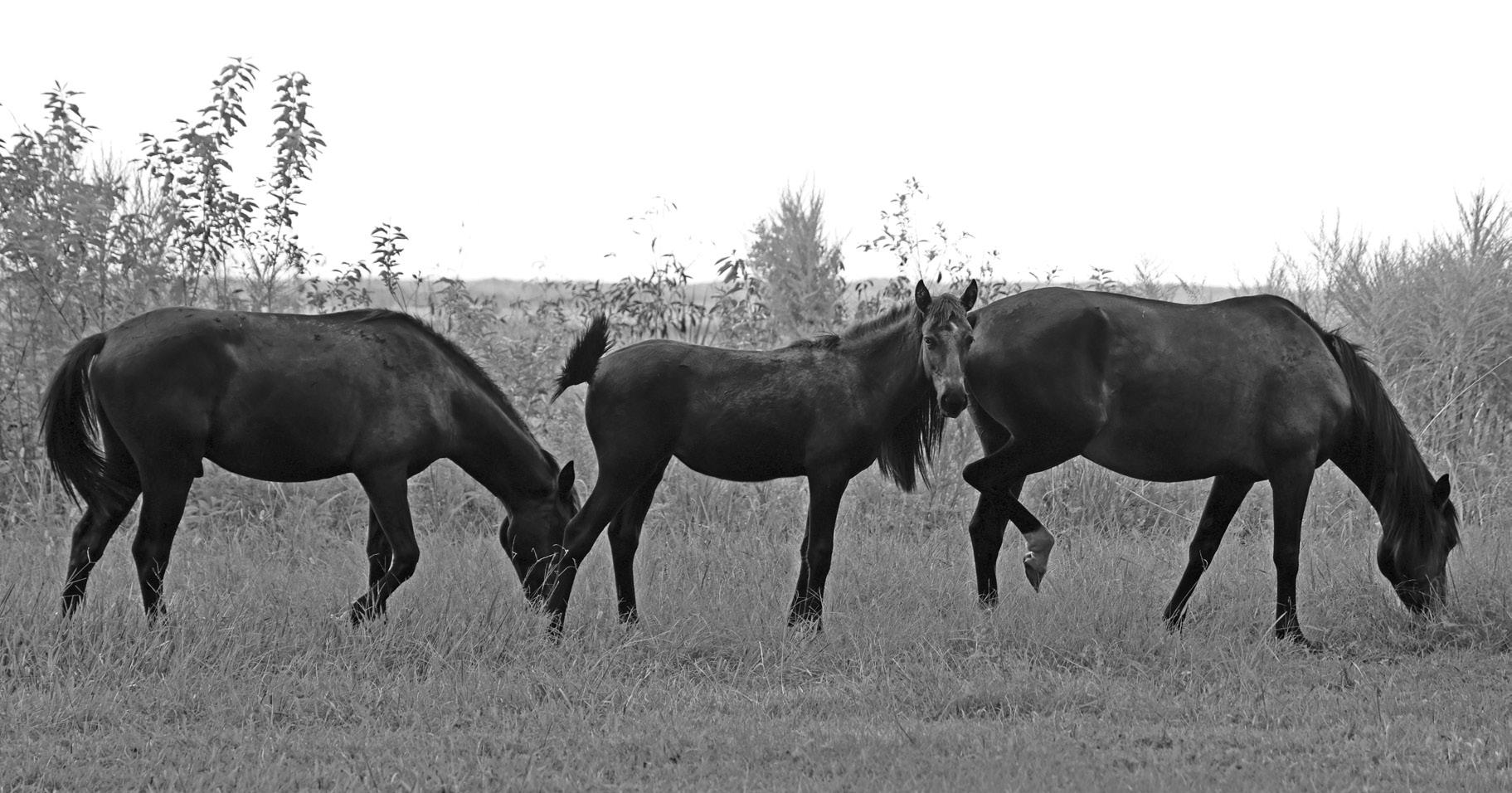
She also mentioned a statewide benefit of the proposal: sustaining the water supply.
“We could run out of water, as unbelievable as that seems,” Siegel said. “Having a national park protection for withdrawals and stewardship would be a good idea.”
The agricultural industry is putting “tremendous” pressures on the springs in North Central Florida by continuing to draw water from them, she said. National park status would keep those pressures at bay, she added.
As North Florida continues to develop, water extraction from the aquifer is a recurring problem, Siegel said. Recharging the aquifer, or letting it refill with water, takes time, she added.
Jonathan Rubin, the president and executive director of the Clean Earth Initiative, agreed.
About 90% of Floridians get their drinking water from the spring area, according to The Nature Conservancy.
“If there’s an issue with overdevelopment or pollution in one part of Florida, the rest of Florida quickly feels it,” he said.
Rubin said this proposal will put the different national parks, pre-
serves and forests in North Central Florida under one shared umbrella to protect the region from water overdraws. He also said a national park would create more economic opportunities for local communities.
Creating the national park could also bring in tourists, Rubin said, which would generate money to develop local economies and make sure the springs don’t get further contaminated.
There are 30 “first-magnitude” springs in central and northern Florida — those that discharge at least 65 million gallons of water every day. All but four are polluted because of runoff from fertilizers, pesticides and paved roads preventing water from filtering into aquifers, according to the Associated Press.
The national park status would also prohibit hunting, which Rubin said could benefit hunters and fishers. By creating a safety zone for wildlife, the bill would create healthy populations that go into other areas where they can then be hunted, he said.
Concerns and questions answered
While Rubin said the bill has the potential to “do a lot of good,” some feel differently.
On Aug. 26, a Marion County resident started a petition named “Protect the Ocala National Forest.” Over 7,700 people signed the petition in support of her concerns, including one about undermining preservation for short-term economic interests.
Ryan Smart, executive director of the Florida Springs Council, said he doesn’t think Fine is proposing a national park for “nefarious” reasons. But he still doesn’t support the plan, saying there are better ways to protect the springs and nearby forests.
Rather than a national park, Smart said, he’d like to see the local government control development and reduce water and fertilizer use. The purpose of the proposal is to protect the springs, but the bill does little to protect them, Smart said.
The two major problems Florida springs face are too much nitrogen pollution and overdrawing water from the ground for agriculture and development — both of which are not addressed in the proposal, he said.
“If there’s going to be a big proposal to protect and restore springs, we would like it to actually have some benefit in protecting and restoring our springs,” he said.
The springs council put out a
statement Sept. 4 in opposition to the proposal. In it, the group expressed concerns over a lack of benefits to Florida springs and state parks, loss of state control over public lands and jeopardizing recreational activities, like off-roading, hiking and primitive camping, that visitors have enjoyed at Ocala National Forest for decades.
“We need the outdoor community to be unified about protecting the things we love,” Smart said.
A national forest aims to preserve resources while also allowing for activities like logging, grazing, mining and recreational activities like hunting and fishing. A national park aims to preserve natural and cultural resources, focusing on protection and limited activity. The Ocala National Forest received its designation Nov. 24, 1908, and has since remained a national forest.
Turning Ocala National Forest from a forest into a park would move the land to different departments within the federal government, explained Taylor Stein, a 55-year-old UF ecotourism and natural resources professor. The different land designations are important, he said, and he’s never seen land move from one department to another in his lifetime.
Although national parks are more protected than forests, he said, the protection is not always good. If the park is protected against logging, a technique that makes timber from trees, one tree species could overtake another, threatening the area’s ecosystem.
“That would be massive if that actually was actually true,” he said. “And that’s why I kind of don’t believe it’s going to be true.”
Regardless, Stein said he hopes if the bill is approved, more people will talk about the Gainesville springs.
While the proposal is changing government land from one name to another, the prestige could get more people and schools talking about the environment, Stein said.
“That’s my job, is to get people to love the Florida environment,” he said. “The more we can get people to love and understand Florida ecosystems and Florida environment, I would be happy,” he said.
@sofiab026 sbravo@alligator.org
Riley Washington was arrested Sept. 12 for a series of incidents over the past 2 months
By Alexa Ryan Alligator Staff Writer
A Gainesville man was arrested in the early morning of Sept. 12 on charges of sexual battery, loitering and prowling and stalking.
According to the arrest report, 36-year-old Riley Washington was responsible for a series of incidents involving inappropriate behavior towards UF students. He has since confessed to all his actions, Gainesville Police Chief Nelson Moya said at a press conference Sept 12.
The arrest report identified “five female victims, all college-age, in the last two months, who have reported being ‘groped’ or ‘grabbed’ under their skirts.”
The first report was made in July when a man matching Washington’s description grabbed a UF student inappropriately. Another incident was reported on Aug. 30, when a man
with the same description reached under another student’s skirt and grabbed her.
The victim of the Aug. 30 incident chased the man away and was able to see he got into a pickup truck.
On Sept. 4, a third student reported a man with this description grabbed her inappropriately.
On Sept. 6, another report was made about a man lifting up a girl’s skirt and then running away. This incident led to a Facebook post in a UF parents group describing the incident, which led to increased parent concerns.
Reports show Washington stalked his victims before assaulting them in several of the incidents.
Descriptions of the car provided by some of the victims and residents allowed law enforcement to identify Washington through surveillance cameras and make a plan to arrest him.
According to the arrest report, GPD tracked Washington’s pickup truck throughout Midtown on the evening of Sept. 11 and through the areas where the sexual assaults had happened.
Around 1:30 a.m., Washington parked and was found hiding in the bushes of a nearby house.
The UF student who lived in the house told law enforcement she had been hearing noises outside her bedroom window for about a week.
The arrest report also noted she had recently “observed the face of a black male in her bedroom window.”
Once Washington saw GPD, he ran away, eventually confessing to his actions once he was caught.
UF Police Chief Bart Knowles credited a UF student’s report of suspicious activity as crucial
to the investigation.
“We had a student that took the time to go to their Gator Safe App, report the suspicious activity that led us to the ability to be able to identify the suspect’s vehicle,” he said.
At a joint press conference held by Gainesville and UF police Sept. 12 to address the arrest, Police Chief Moya asked the public to report any incidents or encounters with Washington.
“Post-arrest, this individual has confessed, he gave us complete details of his actions, including this egregious case,” Moya said. Moya said Washington was scheduled to appear in court Sept. 13. He is currently being held at the Alachua County Jail without bail.
@AlexaRyan_ aryan@alligator.org
MONDAY, SEPTEMBER 15, 2025
www.alligator.org/section/the_avenue
By Summer Johnston Avenue Staff Writer
Soon, when the clock strikes 12, Midnight Cookies will be no more.
The cookie shop, located at 3345 SW 34th St. Suite 1, is closing after 15 years of business. Known for its late-night delivery service, the store has set a tentative closing date of Sept. 21 due to declining sales.
Jon MacAllister, the 41-year-old co-owner of Midnight Cookies, said the store’s struggles have taken a toll on him and his wife, Jen MacAllister. “We feel it’s time to step away and seek other endeavors that aren’t going to be as stressful around our bodies and our minds,” Jon said.
The closing date might change if business significantly increases, the owners said. But without permission from their landlord, an extension wouldn’t be possible.
With the rise in popularity of Uber Eats and DoorDash during the Covid-19 pandemic, the local shop struggled to compete. New Insomnia Cookies and Crumbl locations opening in town have also affected their sales.
Twenty years ago, Jon worked at the California Chicken Grill, a late-night food delivery service in Gainesville.
When Jen started testing cookie recipes, he decided the same concept could apply. Jon’s former boss offered him a kitchen space to rent. That’s where the late-night cookie delivery service, Midnight Cookies, was born.
UF alumni Avery LeFils, 30, and Bernard LeFils, 36, said it’s been their tradition for the last 15 years to get Midnight Cookies on Friday nights before Saturdays in The Swamp.
As a longtime customer, Avery expressed her sadness to see Midnight Cookies fall by the wayside.
“Midnight Cookies was always something we could look forward to,” she said.
UF graduate and former Alligator food blogger Caitlyn Burnitis, 30, said the cookie shop was a fond memory from her college experience. She recalled ordering cookies with friends on her dorm floor.
“Midnight Cookies was the first of its kind in Gainesville,” Burnitis said.
The couples’ only employee, 56-year-old Aaron Esrig, met Jon working at the California Chicken Grill. After eight years of doing yard work, Esrig said he started working for Midnight Cookies consistently. He was drawn to the position because of the MacAllisters’ kindness after Esrig’s mother passed away.
“They may both be younger than me, but they’re kind of like my mom and dad,” Esrig said.
He said he will stay and work until the last day, whenever it is.
On closing day, the MacAllisters have plans to bring leftover cookies to friends and local businesses. For the last couple of hours, they plan to sell discounted cookies.
The owners have discussed the possibility of doing pop-ups or farmers markets to keep their passion for baking alive. After they close, the owners plan to release the recipes to some of their most popular cookies, including the Bananas Foster, on social media.
The MacAllisters said they’re taking time for themselves, focusing on their Skee-Ball league and visiting family next.
@summerajohnston sjohnston@alligator.org
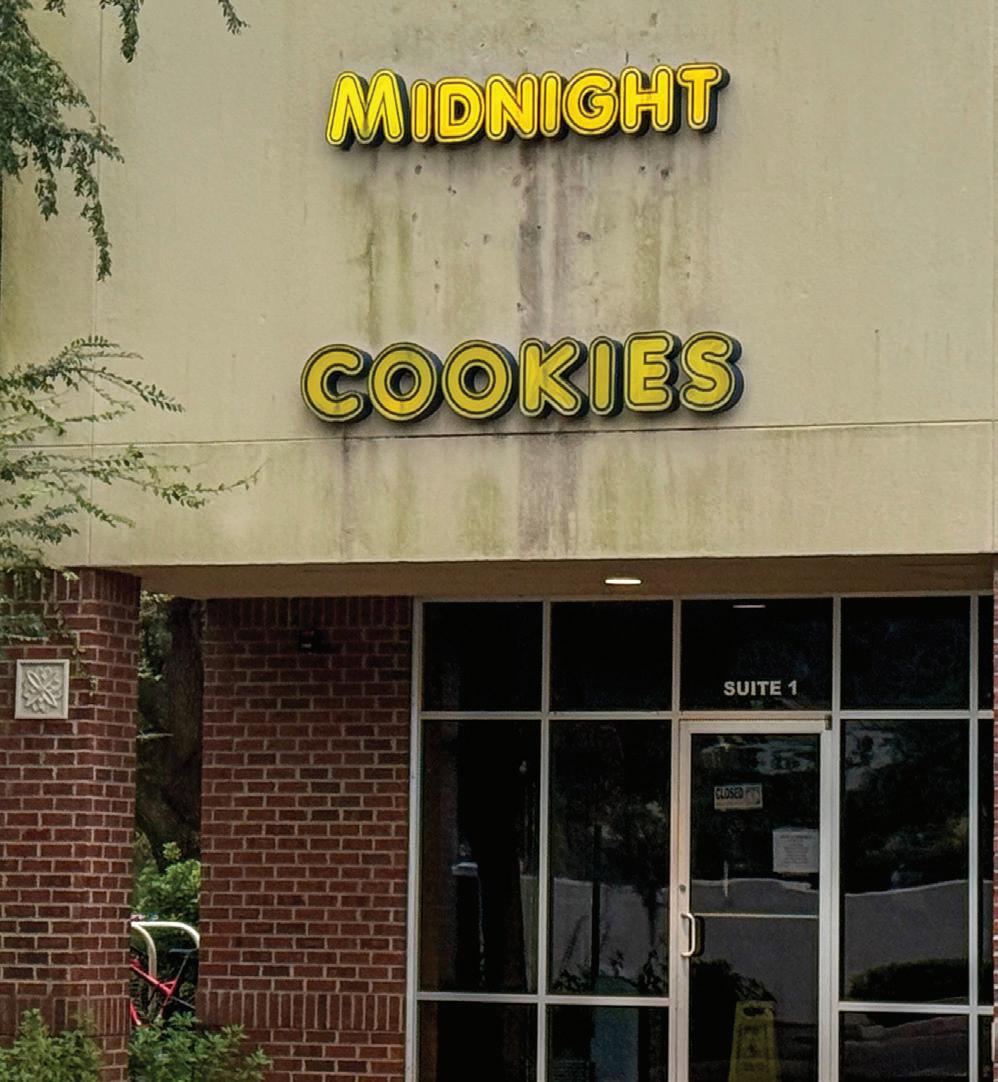
By Christopher Rodriguez Avenue Staff Writer
The yard behind Hume Hall Sept. 13 looked more like the set of the 49-season hit CBS reality show “Survivor” than a soccer field.
Puzzles and tiki torches lay scattered across the grass as three competing “tribes” cheered their teammates along. There, 22-year-old UF marketing major Evan Wahl channeled his inner Jeff Probst, the charismatic host of the original series, as 18 contestants competed for a $250 prize during the 16th season of Survivor Florida.
The Survivor Florida club hosts several of their own seasons per year. Full-length seasons last an entire weekend, while “minis” take just one day to complete. For both, contestants compete in challenges developed by game organizers in a bid to secure immunity. The losing tribe holds tribal council, where they must decide which contestant to vote off.
Getting into Survivor Florida is no easy feat. Among the 104 applicants this season, club leaders selected only 18 to compete. With

Keep up with the Avenue on Twitter.
Tweet us
@TheFloridaAve.
around a 17% acceptance rate, Survivor Florida is more difficult to get into than the university itself.
Wahl, the vice president of the club, said an ideal candidate is excited to meet new people and try new things. But they should also be mentally prepared for the challenges to come.
“Survivor is definitely a very difficult game to play,” Wahl said. “It can definitely take a toll on your emotions.”
The game did just that on the first day of Season 16. Emotions ran high as UF psychology and criminology freshman Lauren Clark was the first contestant to be eliminated. Shocked, she started to cry.
Part of what makes this game so emotional is how much the original CBS show means to those involved, Wahl said. He has seen every season more than once and considers himself a “superfan.”
On Survivor Florida, each contestant receives a bandana printed with the name of their tribe, called a “buff,” just like players on the reality series. Tribal council even features torches, where the contestant voted out has their fire “extinguished” (although the torches on Hume Field remained unlit).
The games Survivor Florida hosts, too, reflect members’ commitment to the TV show. While many of the games are original, they are
all inspired by the “Survivor” franchise.
Megan Schlossmacher, a 21-year-old UF geomatics senior who serves as head of challenges for the club, said she coordinates with the rest of the Survivor Florida team to develop the tasks on something they call Day Zero.
On that day, game organizers can work out any kinks in the design, as well as adjust challenges to make sure they are appropriately difficult. Among their key concerns: ensuring a balance between mental and physical challenges in order to give every contestant a chance to shine.
Schlossmacher also manages the physical toll of the games. One challenge involved running back and forth across the field to collect PVC pipes in order to complete the next phase of the challenge. While the original concept was to have them on complete opposite ends of the field, Schlossmacher decided to place them a bit closer together
“We don’t want people passing out.” Schlossmacher said. “There is a mental and a physical push, but we’re not trying to completely deplete these people like the actual show.”
Survivor Florida players do not have to live off of the land while they compete. Nevertheless, the brutal heat of the Florida sun is its own challenge.
Kaelyn Malloy, an 18-year-old UF sports management freshman, said participating in the games gave her a new appreciation for the show. Dealing with even a “diet” version of the show made her appreciate the dedication and passion the contestants of the real thing have, she said.
“I’m out here [with] eight hours of sleep,” Malloy said. “These poor people who are actually playing get like four hours of sleep. There’s bugs all over them. There’s snakes everywhere.”
But at the end of the day, some contestants are just excited to be a part of the fun.
For 19-year-old UF wildlife ecology and conservation sophomore Elizabeth Pall, being part of Survivor Florida gives her a break in her typical routine.
“It adds some excitement to my life,” said Pall. “This is something to look forward to beyond just the typical schoolwork, go to the gym, go to sleep, kind of routine.”
Applications for the next season of Survivor Florida are due Sept. 21, and the club’s Survivor season premiere watch party will take place on Sept. 24.
@ChrisRodri29386
crodriguez@alligator.org

LUNES, 15 DE SEPTIEMBRE DE 2025
www.alligator.org/section/elcaiman
EL FESTIVAL RESALTA LA MIGRACIÓN Y LA DIVERSIDAD A TRAVÉS DE LA MÚSICA, EL ARTE Y EL CINE
Por María José Cordero Castillo
Escritora colaboradora de El Caimán
Los ritmos de salsa, merengue y bachata llenaron el Harn Museum of Art el 11 de septiembre, cuando los invitados se reunieron para la noche inaugural del 21.º Festival de Cine Latino de Gainesville.
Durante las próximas dos semanas, el público podrá disfrutar de proyecciones y eventos culturales gratuitos que transmiten la misión del festival: acercar las historias y voces latinoamericanas a la comunidad de Gainesville.
PLATOS CULTURALES OFRECEN UN DESCANSO DE LA RUTINA ESTUDIANTIL
Por Victoria Riccobono
Escritora de El Caimán
La comida universitaria y la preparación de alimentos en casa pueden volverse predecibles. Pero la escena de camiones de comida en Gainesville ofrece un escape lleno de sabor — desde platos de rabo de res hasta almuerzos coreanos — que aportan cultura y comodidad a la comunidad.
Not your Mammy’s soulfood & BBQ Una organización sin fines de lucro sobre ruedas, Not Your Mammy’s ofrece recetas familiares con raíces en la tradición. Platos clásicos como la cena de rabo de res por $23 y las alas de pavo por $18 llenan los estómagos de clientes los fin de semana con sabores sureños. Angela Harris, una de las dueñas

Guiado por el lema “Enriqueciendo culturas, empoderando comunidades”, el programa de este año celebra la migración como un puente que une a las personas y enriquece a las comunidades, haciéndolas más vibrantes e inclusivas.
“Este año celebramos la migración, no como una pérdida, sino como una transformación de personas, lugares y posibilidades”, dijo Ericka Ghersi, profesora adjunta de Santa Fe College y presidenta de la Liga de Mujeres Latinas, la organización detrás del festival.
El amarillo, azul y rojo de la bandera colombiana destacaban entre la multitud mientras los asistentes conversaban en una mezcla de español e inglés. Entre ellos se encontraba Sirelys Valera, contadora de 47 años y voluntaria de la liga desde hace tres años.
Valera compartió que migrar es un camino profundo y, a menudo, difícil: “Yo he sido bendecida, me ha ido muy bien… pero mi
del negocio familiar, explicó que los platos forman parte del legado generacional de su familia — recetas transmitidas o creadas con el fin de ofrecer una experiencia cultural única.
“Como que se volcó en los platos que servimos en el camión de comida,” dijo Harris.
El camión abrió en 2023 y un año después comenzó a usar sus ventas para apoyar a las personas sin hogar en Gainesville. Los clientes que pueden pagar mantienen el negocio en marcha, mientras que otros reciben comida sin costo.
Junto con su esposo, hija y nieto, la familia dedica sus sábados y domingos a compartir el sabor del soul food con todos, sin importar su situación económica.
“La gente viene acá y dicen: ‘Oh, estamos muy agradecidos de que ustedes estén aquí cada fin de semana, realmente no tenemos nada,’” contó Harris. “Solo están muy agradecidos de que hayamos dado un paso adelante para ofrecer algo en esta zona.”
Not Your Mammy’s está
Mantente al día con El Caimán en Twitter. Envíanos un tweet @ElCaimanGNV.

historia no es la historia de todos”, comentó. Para ella, el evento permite a las personas acercarse a la cultura latina. “Somos alegres, proactivos y queremos ayudar”.
Según Valera, el público a menudo se sorprende por la autenticidad de las historias. Cada película acerca las realidades latinoamericanas a otras comunidades, explicó.
Marina Jordan, coordinadora de Apoyo y Asesoría para Estudiantes Internacionales en Santa Fe College, de 59 años, expresó un sentimiento similar.
“Es una oportunidad para que la comunidad latina se conecte con sus raíces y para que los americanos conozcan mejor nuestra cultura”, dijo.
La noche de apertura reunió a personas de Nicaragua, Venezuela, México, Perú, Colombia y otros países. Las risas y las conversaciones llenaron los pasillos mientras las organizadoras invitaban a los residentes
localizado en 3845 NE 15th St.
Plato popular que no te puedes perder: Cena de rabo de res
Tony Dillas
Los hermanos Joshua Johnson y Vincent Sangineto traen recetas inspiradas por su abuelo,Tony, y sus viajes por México. Desde el 2019, su menú ha crecido a más de 15 opciones, desde rollos de huevo por $5 hasta nachos por $10.
Su plato estrella, el Chef Style por $18, incluye cuatro quesadillas — barbacoa, carnitas, camarón y pollo — acompañadas con arroz, frijoles, salsas y una bebida.
“Nosotros tratamos de ofrecer algo que la mayoría de los camiones de comida no traen: un menú muy amplio,” expresó Johnson. “Sentimos que traemos comida de alta calidad y excepcional a la comunidad.”
Johnson dijo que el Chef Style es perfecto para aquellos que quieran probar una variedad de sabores.
Los hermanos explicaron que se estacionaban en distintas zonas de Gainesville tratando de encontrar
Send questions to our advice column. Read more on pg. 8.
de Gainesville a disfrutar de más de diez eventos en distintos puntos de la ciudad en los próximos días. Entre los artistas, académicos y directores invitados se encuentran Mabel Valdiviezo, David David y María José Noriega. Tras la proyección inaugural, el público se retiró conversando con entusiasmo sobre las actividades que se aproximan.
En las jornadas venideras, el festival ofrecerá una programación diversa que contempla un festival infantil el 20 de septiembre en el Auditorio Blount Hall de Santa Fe College, la proyección de la película Glory of the Pacific el 17 de septiembre en el escenario interior de Heartwood Soundstage y una noche de danza folclórica el 27 de septiembre en el Lyceum Concert Hall, invitando a toda la comunidad a seguir celebrando la riqueza de la cultura latinoamericana.
@marprofundo___ mcastillo@alligator.org
el lugar ideal para compartir su comida con la comunidad. Pero, en el último año, se han establecido cómodamente en 5221 NW 43rd St.
Plato popular que no te puedes perder: Chef Style
K-INACUP
Una adición más reciente a las opciones culinarias de Gainesville, K-INACUP diariamente ofrece un sabor de la cultura coreana.
El negocio familiar abrió en el verano del 2024 y sirve una mezcla de platos coreanos tradicionales y nuevas creaciones, comentó Day Lee de 21 años. Sus padres son los dueños del restaurante y ella usualmente ayuda con los pedidos y la preparación de la comida.
Los platillos ofrecen una variedad de sabores y texturas, dijo Lee.
“Yo siempre espero que las personas tengan comida que puedan disfrutar,” expresó Lee.
Los clientes pueden ordenar entre diversas opciones coreanas que cuestan de $10 a $15. El menú incluye tteokbokki, que son pasteles
de arroz picantes, japchae, o fideos de cristal, y cupbap, que Lee describe como comida de calle coreana.
Además de la comida, Lee espera que los clientes puedan conocer un poco más sobre la gastronomía coreana.
“Experimentar con una cultura nueva siempre es bueno,” explicó Lee. “Nosotros tratamos de poner música coreana para crear agregar al ambiente.”
K-INACUP está localizado en 931 SW Second Ave., En Midtown Park and Eatery.
Plato popular que no te puedes perder: dosirak (loncheras)
Desde macarrones con queso hasta dumplings, los caminos de comida en Gainesville ofrecen más que solo un plato — son una puerta hacia la comunidad, la cultura y la comodidad más allá de las comidas cansadas del campus.
@vickyriccobono vriccobono@alligator.org
Síganos para actualizaciones
Para obtener actualizaciones de El Caimán, síganos en línea en www.alligator.org/section/elcaiman.


MONDAY, SEPTEMBER 15, 2025
www.alligator.org/section/opinions
Idon’t know you. But I want to give you advice.
To get the introductions out of the way, my name is Alejandra, and I love to opine. I always find myself lending an eager ear to anyone who needs it, no matter the situation. I sometimes feel like I have seen it all.
Typically, my friends come to me, asking for guidance on whatever is plaguing them. Sometimes, they ask whether they should keep a job that is stressing them out a bit too much. They creep into my room on occasion to rant about their partners. One time, I was in the bathroom when my roommate tapped on the door, summoning me to dispense wisdom.
No matter where I am, I try to be there, listening and understanding. These small moments strengthened my ability to articulate my opinions and perspective on their situations. In a way, my friends have inspired me to write this column. They taught me that although life does not look the same for everyone, our shared humanity lies in those differences.
In my time at UF studying anthropology and English, I have encountered all kinds of people. Through those meetings, short or lifelong, I learned a little bit about everything under the sun. It is my job, and honor, to help you sort through the messiness of life. I do not promise to know everything or to solve all your problems, but I will provide my honest perspective on any issue that could use guid-
ance without judgment.
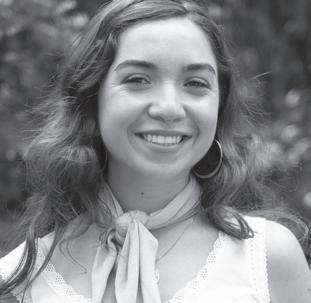
Alejandra Agustin opinions@alligator.org
Pierre Bayard writes, “Other people’s views are thus an essential prerequisite to forming an opinion of your own.” My advice is here to supplement what you already know. This serves as a no-judgement zone where anything goes. Trust me when I say, we are all more similar than we realize.
By writing in, you are starting a conversation about an important aspect of the human experience, even if it’s just asking me if you should go vegan. At the end of the day, I am here as a resource to you. Think of me as an emotional librarian; I pull the sources and information from my catalogue and help you answer your research question. I am your faithful servant.
Send questions to opinions@alligator.org. Please include your name, age — and if you are a student — your major and year, even if you wish to remain anonymous. We can keep identifying information private. Questions may be edited for clarity in publication.
Alejandra Agustin is a 21-year-old UF English and anthropology student.
Editor’s note: This column is intended for general knowledge only and should not be considered professional medical advice. Always consult with a licensed care provider before making decisions related to your health.
Ithink we have all heard that aspartame, the sweetener in many diet sodas, has been found to cause cancer. Every time I order a sweet, crispy Diet Coke, my mom gives me that look and a mini lecture. But what if I told you the cancer risk of aspartame has been vastly exaggerated?
Unlike what TikTok wellness influencers have you believing, the amount of aspartame you would need to consume to have any increased risk of cancer is probably orders of magnitude larger than your so-called Diet Coke addiction. It would take the average person drinking about a dozen cans of Diet Coke daily — indefinitely — to reach the acceptable daily intake, according to the Joint Expert Committee on Food Additives. And that acceptable daily intake is just a fraction (usually onehundredth) of the maximum dose of aspartame that could be consumed without suffering any negative health effects. So even if you’re indulging in a daily Diet Coke or two, you are nowhere near the harmful amount.
Aspartame opposers love to bring up the International Agency for Research on Cancer’s classification of aspartame as a class 2A “possible carcinogen to humans,” but the Food and Drug Administration has adamantly opposed this classification due to “significant shortcomings in the studies.” After studying aspartame consumption in the U.S., JECFA concluded “dietary exposure to aspartame does not pose a health concern.” Because
The views expressed here are not necessarily those of The Alligator.
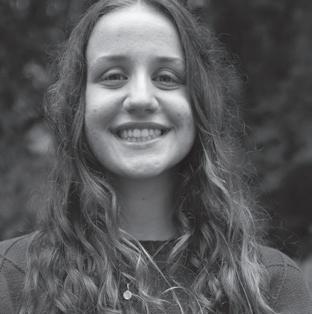
opinions@alligator.org
many often trust the Europeans more when it comes to these matters, I’m happy to report that the European Food Safety Authority also deems aspartame safe for human consumption. So, no, that Diet Coke is not going to kill you, unless you drink, like, 20 cans a day for the rest of your life — then no promises! And before diet soda, we had good old regular soda, which is much more harmful to our health. A single 12-ounce can of Coca-Cola contains 39 grams of added sugar. If that number means nothing to you, the American Heart Association recommends adult men consume less than 36 grams of added sugar per day. Unfortunately, it’s even less for us women at a recommended maximum of 25 grams of added sugars (more proof that life is harder for us).
Your pediatrician did not tell your parents to limit your added sugar intake as a kid because they hated you, as personal as it may have felt at the time. Excessive consumption of added sugar is associated with increased risks of Type 2 diabetes, heart disease and excessive weight gain — which is actually a known risk factor of cancer. So, I’ll be opting for the sugar-free (and objectively tastier) Diet Coke.
Cheers, Mom.
Lara Caglayan is a 21-year-old UF nutritional sciences student.
The Alligator encourages comments from readers. Letters to the editor should not exceed 600 words (about one letter-sized page). They must be typed, double-spaced and must include the author’s name, classification and phone number. Names will be withheld if the writer shows just cause. We reserve the right to edit for length, grammar, style and libel. Send letters to opinions@alligator.org, bring them to 2700 SW 13th St., or send them to P.O. Box 14257, Gainesville, FL 32604-2257.Columns of about 450 words about original topics and editorial cartoons are also welcome. Questions? Call 352-376-4458.
APARTMENT FOR RENT - Furnished 1BR, 2nd floor, heat/air not central. 10 Minutes to campus 409 SE 14th Pl. Asking $900. Grad students preferred. No drinking, drugs, smoking, pets. 55 & Older. 352-213-5942 9-22-25-5-1
● UF Surplus On-Line Auctions ● are underway...bikes, computers, furniture, vehicles & more. All individuals interested in bidding go to: SURPLUS.UFL.EDU 392-0370 8-14-25-13-10
Donate your vehicle to help find missing kids and keep kids safe. Fast free pickup, running or not, 24 hr. response. No emission test required, maximum tax deduction. Support Find the Children Call – Call 1-833-546-7050 9-15-24-12
When the heat is on and
We Buy Houses for Cash AS-IS! No repairs. No fuss. Any condition. Easy process: Call, get cash offer and get paid. Call today for your fair cash offer: 1-321-603-3026 9-15-2-5
AUCTION 10 ACRES AND 3/2 HOME WITH BUILDINGS; SEPTEMBER 27TH AT 9AM MCALPIN, FL; BUYERS PACKET: CALL 386-362-3300; JW HILL AND ASSOCIATES AB#2083 9-15-1-5
Gold/Silver Coins ● Paper Money ● Stamps Watches ● Jewelry ● Silver Flatware Comic Books ● Sports Items Near Campus ● Call
CASH PAID FOR HIGH-END MEN'S SPORT WATCHES. Rolex, Breitling, Omega, Patek Philippe, Heuer, Daytona, GMT, Submariner and Speedmaster. These brands only! Call for a quote: 1-833-641-0211 9-15-20-13
We Buy Vintage Guitars! Looking for 19201980 Gibson, Martin, Fender, Gretsch, Epiphone, Guild, Mosrite, Rickenbacker, Prairie State, D'Angelico, Stromberg. And Gibson Mandolins / Banjos. These brands only! Call for a quote: 1-833-641-6789 9-15-34-13


● ● KOREAN TUTOR NEEDED ● ● Two professional women seeking in-person or virtual written/spoken Korean language tutor. Native proficiency required. Text Megan at 3522134210. 9-29-25-4-14
PROTECT YOUR HOME from pests safely and affordably. Roaches, Bed Bugs, Rodent, Termite, Spiders and other pests. Locally owned and affordable. Call for a quote or inspection today 1-833-542-1732 Have zip code of property ready when calling! 9-15-80-15
When you're stuck out in Oz and you need cash to get home, click your heels three times and think of Best Jewelry and Loan. 523 NW 3rd Ave 352-371-4367 12-1-15-15
● Affordable RV Camping Near Campus! ● Convenient location just minutes from UF. Safe, quiet, perfect for game day weekends. Water, electric, and Wi-Fi. Reserve your spot today! 352-372-1026 katesfishcamp.com Book Early - Limited Spots! 12-1-25-15-15
BATH & SHOWER UPDATES in as little as ONE DAY! Affordable prices - No payments for 18 months! Lifetime warranty & professional installs. Senior & Military Discounts available. Call: 1-833-754-2465 9-15-73-15
● ● FLORIDA NATIVE SERVICES ● ● Handyman, Lawn Care & Painting Starting at $35 an hour Call / Text for a Quote 386-292-2153 10-6-5-15
DRUG PROBLEM?
WE CAN HELP!
24 HOURS 7 DAYS CALL NARCOTICS ANONYMOUS 352-376-8008 www.uncoastna.org pr@uncoastna.org
Need CPR Training? (352) 727-4733 www.GatorCPR.com CNA Prep Classes from GatorCNA.com 12-1-25-15-16
ATTENTION OXYGEN THERAPY USERS! Discover Oxygen Therapy That Moves with You with Inogen Portable Oxygen Concentrators. FREE information kit. Call 1-833-661-3729 9-15-103-16
HIV ANTIBODY TESTING
Alachua County Health Dept. Call 334-7960 for app’t (optional $20 fee)
These Might be the Bible Answers you've been Looking for !!!
www.MusingsAboutGod.com Logical, Clear, Respectful......ahhhh......... but a little Different ... 9-22-25-8-20
"Dreams—Why Do We Dream?" You are invited to a Spiritual Discussion on Dreams, Sat. Sept. 27, 12:00 PM-1:00 PM presented by ECKANKAR, The Path of Spiritual Freedom. Web site - http://www.eck-florida.org
Location:Tower Branch Library, 3020 SW 75th St., Gainesville, Fl 32608 9-22-25-5-20
and


SUBMIT YOUR AD TO ONE OF THE FOLLOWING CATEGORIES TODAY!
MOPEDS
&
District 2 – North Florida Al-Anon Family Groups
Help for the family and friends of alcoholics Find a local Al-Anon Meeting at our website: alanonfla2.org 8-21-3-16
Attention: VIAGRA and CIALIS USERS! A cheaper alternative to high drugstore prices! 50 Pill Special - Only $99! 100% guaranteed. CALL NOW: 1-877-349-1243 9-15-2-16
STOP OVERPAYING FOR HEALTH INSURANCE! Reduce premiums and out-ofpocket costs while getting the coverage you need! Call now for a competitive free quote. 1-877-351-3442. Plus... Income based government subsidies are available for those that qualify! 9-15-2-16
1. MOVIES: What was the name of Ron Burgundy's dog in "Anchorman"?
2. LITERATURE: The middle school student Greg Heffley is the protagonist of which book series?
3. SCIENCE: What is the Abyssal Zone in the ocean?
4. GEOGRAPHY: Where is the island of Aruba located?
5. TELEVISION: Which city is the setting for the series "Breaking Bad"?
6. PSYCHOLOGY: What is the fear of colors called?
7. ANATOMY: What connects muscles to bones?
8. U.S. STATES: Which state is home to the Badlands National Park?
9. U.S. PRESIDENTS: Who was the sixth president of the United States?
2025 King Features Synd., Inc.
1. He won five NBA championships and has his No. 10 retired by the Detroit Pistons. His daughter has played on the U.S. Women's National Soccer Team. Who are they?
2. Germany's Isabell Werth won 14 medals over seven Summer Olympics from 1992-2025, competing in what sport?
3. In rowing, the coach of the boat responsible for steering, safety and motivating the crew is known as what?
4. At the 2025 Major League Baseball All-Star Game, which Philadelphia Phillies slugger hit three home runs in the game's first "swing-off" tiebreaker round to give the AL a 7-6 win over the NL?
5. Founded in 1908, The Strongest is the oldest active soccer club in what South American country?
6. What NFL quarterback was going to purchase a $2.99 million, fully functioning Batmobile replica until a December 2024 robbery at his home made him reconsider?
MONDAY, SEPTEMBER 15, 2025
www.alligator.org/section/sports
By Daniela Ortiz Sports Writer
For UF Ice Hockey Club president Noah Horwitz, every home game starts the same way: not in a locker room, but in a car.
That’s the reality of playing hockey in Gainesville, a city without an ice rink. The closest sheet of ice is the Community First Igloo in Jacksonville, a 90-minute drive. The team’s “home games” aren’t really home at all. Instead, they start with gear bags thumping into trunks, sticks clattering against back seats and players squeezing into borrowed rides. By the time players finish the game and cram back in for the return trip, it’s often well past midnight. They don’t roll back into Gainesville until the early morning, stumbling into bed just hours before their alarms drag them up for class.
Horwitz says the players have learned to live with the travel. The team’s accolades prove the setbacks haven’t hurt its play, as
the Gators secured their first national championship in 2024. But the setup is still far from ideal, he said.
“It doesn't necessarily feel like a home game every game,” he said. “But we can't really blame people for not wanting to drive an hour and a half on a random night to come watch us play.”
The ultimate goal, Horwitz said, is to bring a rink to Gainesville, or at least somewhere closer than Jacksonville. Other southern programs are proof it’s possible, he said. Georgia plays right in Athens at Akins Ford Arena, and Tennessee has rinks in Knoxville and the neighboring Farragut.
Gainesville Mayor Harvey Ward said he’s open to building a rink in the city. However, there’s one glaring issue: funding. The city is facing financial pressure related to public transportation, and taking on a new project on an already-tight budget feels daunting, Ward said.
“I cannot imagine that in a scenario like that, we would say, ‘Sure, let's fund an ice rink,’” Ward said.
To make it feasible, Ward said, the rink would have to double as a year-round multi-
purpose facility — something the city could justify keeping open long after the hockey season ends. Still, a significant portion of the money would have to come from the university or the team itself.
That’s a tall order for a club program with little more than player dues and merch sales to cover expenses.
Using a rink an hour and a half away makes every game a slog. But for the players, the road itself has become part of the story.
“You're usually driving with different people every time, so you get to hear a lot of new voices, have a lot of different conversations,” Horwitz said.
Jack Tepper, a 20-year-old UF construction management junior on the lower-tiered squad, is familiar with the grind. Sharing the same arena as the top team means packing up, carpooling and following the same routine for every game.
While exhausting, the travel also creates moments he said he wouldn’t trade. Car rides turn into karaoke sessions, impromptu football watch parties or long stretches of laughter with teammates.
“At the end of the day, you're with your
By Curan Ahern Sports Writer
In college football, punishments can come for a slew of reasons and range from fines to suspensions. When Florida redshirt sophomore defensive lineman Brendan Bett was ejected for spitting on USF junior offensive lineman Cole Skinner, head coach Billy Napier looked for remorse, kept the discipline internal and allowed Bett to continue play in UF’s third game of the season.
UF geared up to face No. 3 Louisiana State at Tiger Stadium Sept. 13, and Napier decided not to publicly announce Bett’s consequence for last week’s incident. He merely said the lineman would miss “a little bit of time.”
“We are going to keep that discipline internal,” Napier said to SEC Nation Sept. 13. “But it’s been a good week, and I think he has tried to handle it with some dignity.”
Napier seemed pleased with the remorse Bett showed following the incident and praised the accountability he took in his apologies to the team and the public.
“For him, there was a lot of feeling about representing the university the right way,” Napier said. “Out-of-character moment for him.”
Bett sat for only the first quarter before he re-

alligatorSports has a podcast! The alligatorSports Podcast releases episodes every Wednesday and can be streamed on Spotify, Apple Podcasts or your other preferred streaming platform.
boys in a car going to play the sport that you guys all love,” Tepper said.
About a year ago, Tepper said, he decided to take matters into his own hands. He dove into research, eventually creating a business plan for the City Commission outlining how Gainesville could realistically support a rink. He never got to present it — school got in the way, he said — but the file still sits on his laptop, a reminder the idea isn’t dead.
To him, the rink wouldn’t just belong to the team. It would be for the whole community, he said.
“[We’re] not just helping the club hockey team drive less hours, but turning the ice rink into a community center where we raise money, help out charities and we're introducing people that might have never seen a hockey game in their life to the sport,” Tepper said. For now, the Gators will keep packing cars, filling them with sticks and duffel bags, and chasing ice that isn’t theirs — but the possibility of a true home rink still lingers on the horizon.
@danielaortizUF dortiz@alligator.org

corded three total tackles — including one solo — against LSU.
The redshirt sophomore played a larger role among Florida’s defensive front after standout redshirt senior defensive lineman Caleb Banks missed Florida’s first two games with a lower-leg injury. Banks got his first start against LSU, but Bett still worked into the game after his shortlived punishment. Banks reinjured his foot in the third quarter and exited the contest.
“Reinjured the foot,” Napier said tersely. “We’ll have more information next week.”
Florida’s defense was formidable against LSU and forced the Tigers to punt in each of their first three drives as they totaled just 45 yards in the first quarter. Through 12 LSU possessions, Florida allowed just 13 offensive points and forced seven punts to keep itself in the game.
However, the Gators failed to capitalize off of their impressive defensive performances, and their offense has fallen stagnant across the last two games. The Gators have scored just two touchdowns while Lagway has tossed six interceptions.
“The game slipped out of our hands two weeks in a row,” sophomore linebacker Myles Graham said Sept. 13. “It’s not just on DJ, it’s not just on defense, it’s not just on one person. It’s on all of us, and we’ve got to all-around play better.”
@CuranAhern cahern@alligator.org
Follow our newsletter Love alligatorSports? Stay up to date on our content by following our newsletter. Scan the QR Code to sign up.

Follow us for updates For updates on UF athletics, follow us on Twitter at @alligatorSports or online at www.alligator.org/section/sports.
By Max Bernstein Sports Writer
At their own 40-yard line with 29 seconds to go in the first half, the Florida Gators had a chance to double up against No. 3 LSU. The score was tied,10-10, and UF was set to receive the second half kickoff.
To that point, it had been an up-and-down night for sophomore quarterback DJ Lagway. He was intercepted in plus territory on a thirdand-10 in the first quarter but responded with a touchdown throw to sophomore Aidan Mizell to even the score with three minutes left in the second quarter. But Lagway’s rollercoaster night soon shifted into a full-blown nightmare.
Looking across the field for freshman wide receiver Vernell Brown III, Lagway lofted an interception to senior safety A.J. Haulcy, who read the throw with ease. That allowed the Tigers to kick a field goal to head into the half up 13-10.
The bleeding didn’t stop there. On a thirdand-18 midway through the third quarter, Lagway stepped into a clean pocket and quickly fired a throw ahead of redshirt senior J. Michael Sturdivant on an in-breaking route. LSU safety Dashawn Spears, who had picked off Lagway in the first quarter, came down across the throw and snagged it, running it 58 yards for an LSU touchdown.
Lagway later threw two more picks late in the fourth quarter, finishing UF’s 20-10 loss to
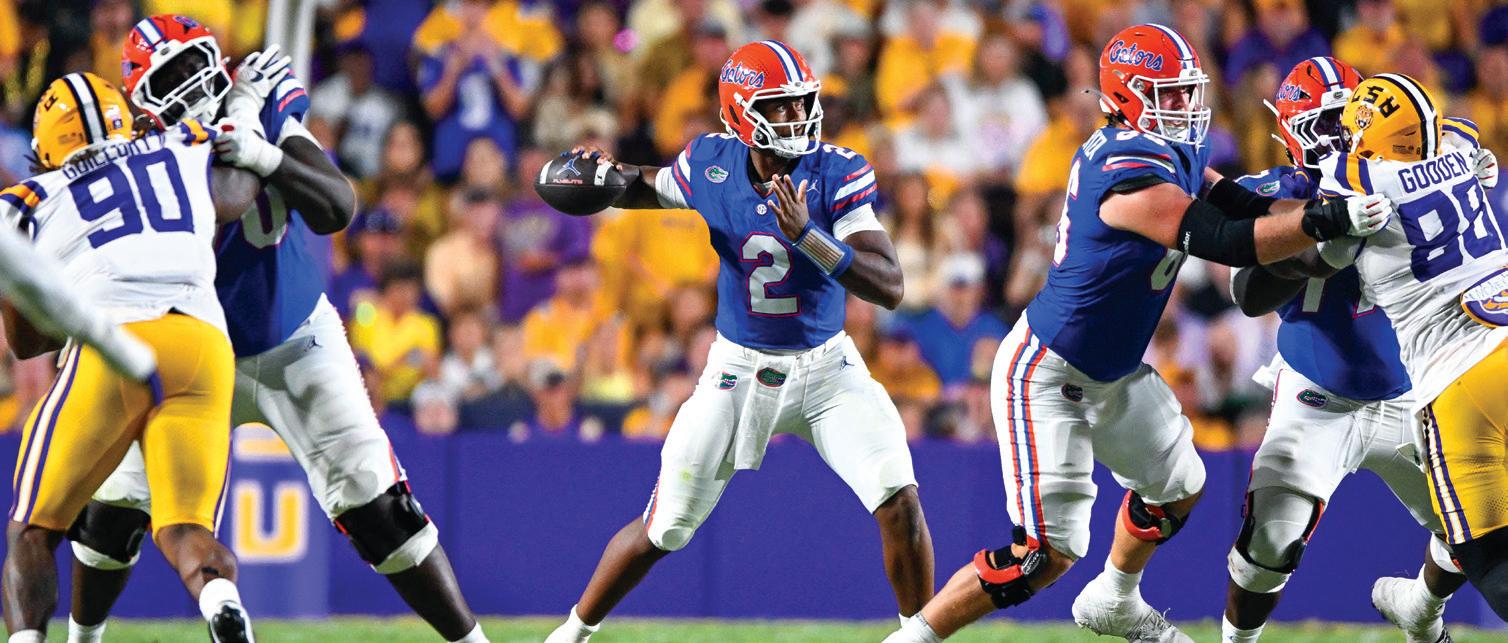
LSU with a whopping five interceptions, tied for the second-most in a game in UF program history. The last time a Gator quarterback threw that many picks in a single game was 1992.
Throughout the former five-star’s high school and collegiate career thus far, he had never thrown more than two interceptions in one game.
“I played horrible football today,” Lagway said. “I've never had a performance like that in my life, so it's kind of hard to process it.”
Adversity is a new challenge for the Willis, Texas, native. He electrified in his freshman season, leading the Gators to a 6-1 record as a starter. Entering 2025, Lagway was a Heisman hopeful for a Florida team expected to be on the rise.
But the warning signs were prevalent from the moment the 2024 season ended. Lagway went through a treacherous offseason filled with setbacks. Three separate injuries kept the former five-star recruit mostly out of action during the preseason.
“He's had a very unique offseason," Florida head coach Billy Napier said Sept. 13. "He's missed quite a bit of time. But I would say that what he's going to say to you is that he's not going to use that as a crutch. This is not a young man that's looking for excuses.”
The lack of preseason preparation could account for a majority of Lagway’s mishaps. On all five interceptions, Lagway seemed to rush a throw to his first read instead of going through his progressions to find the right play. Napier noticed, too, saying that was the “primary” is-
sue on all five errant throws.
Notably, despite Lagway’s subpar performance, he remained under center through the entirety of the matchup. After the game, Napier made it clear Lagway would remain UF’s quarterback going forward, even with calls for true freshman Tramell Jones Jr. to step in and give Lagway a breather.
“I don’t subscribe to that theory,” Napier said about starting Jones. “DJ’s our quarterback. He’s one of the best quarterbacks in the country.”
Napier isn’t the only member of the Florida program with faith in the quarterback. Sophomore linebacker Myles Graham emphasized postgame Lagway doesn’t deserve all the blame for UF’s defeat.
“We got to play better on both sides of the ball,” Graham said. “It's a team game. It's not just on DJ; it's not just on him. It’s not just on one person. It's on all of us.”
Lagway also struggled during Florida’s 1816 loss against South Florida on Sept. 6, throwing an interception on a deep pass in the third quarter while orchestrating just one touchdown drive.
Over UF’s three games this season, Lagway has thrown six interceptions and five touchdowns, with three of the scores coming against Long Island in a 55-0 win Aug. 30. Meanwhile, Florida’s defense has only suffered two touchdowns all season.
The sophomore quarterback’s path back to consistent play does not get any easier moving forward. Florida heads south to play undefeated No. 4 Miami (3-0) at 7:30 p.m. Sept. 20.
@maxbernstein23 mbernstein@alligator.org

